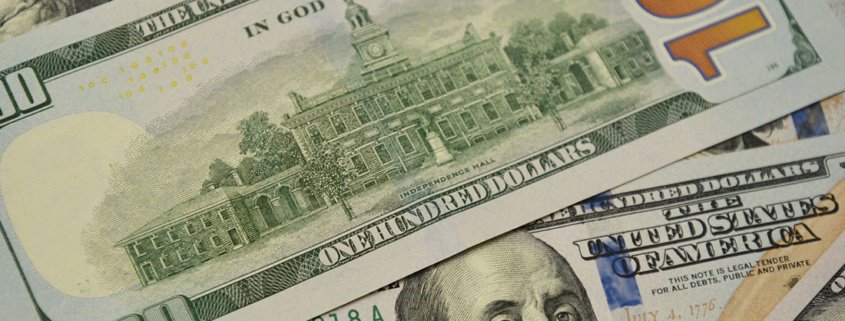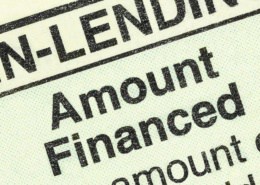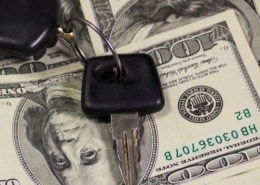Top 10 Auto Refinance Myths Explained
Many misconceptions are floating around the internet about auto refinance myths. Believing these misconceptions keeps people from taking advantage of a service that may save them hundreds, if not thousands, of dollars on their current high-interest car loans.
I want to clear the air about ten of the most common auto refinancing myths. Take the time to read through them and decide if refinancing your car is the right choice.
Table of Contents
- About auto refinance myths
- 1) Is it a good time to refinance?
- 2) Getting my car appraised is a hassle
- 3) Shopping for the best rate is hard
- 4) I won’t save enough money
- 5) Lenders won’t refinance negative equity
- 6) I have bad credit
- 7) It costs too much to refinance a car
- 8) I have a prior bankruptcy
- 9) Good credit guarantees I’ll be approved
- 10) Lenders won’t refinance self-employed
Auto Refinance Car Loan Myths
FALSE – Although banks are cautious with who they approve for loans, it’s straightforward to see that interest rates are very low and auto refinance interest rates are at historical lows.
The Bank’s cost of capital is very cheap right now. Banks, lending institutions, and online auto lenders can borrow short-term money at very low rates and still make money by offering long-term loans with rates attractive to consumers. Refinancing your current car loan will lock in a low-interest rate before interest rates start to rise.
Read more tips and information on how to refinance a car online here.
1) It’s Not a Good time to Refinance My Vehicle
Every day thousands of vehicles are declared a “total loss” by insurance companies. These vehicles are involved in accidents, stolen, or in some other kind of catastrophe.
An insurance company will only pay the “book value” or actual cash value (ACV) on a total loss vehicle claim; if the driver owes more on his vehicle than what the car’s worth, they will be responsible for paying off the difference out of pocket. If the individual is fortunate enough to have GAP insurance, they will not have to worry about the deficit to the bank or lender.
2) Having My Vehicle Appraised is a Hassle
NOT APPLICABLE – Unlike your home, where the loan is based on your equity. When you apply for an auto refinance loan, you do not have to have your vehicle appraised.
You also don’t have to worry about paying for an on-site appraiser or dealing with a car dealership to get your vehicle appraised. Auto refinances lenders will use NADA, KBB, or other books to value your current car based on the year, make, trim, features, mileage, and vehicle identification number.
3) Comparison Shopping is a Waste of Time
NOT TRUE – Comparison shopping is the best way to get the lowest price or best deals on anything you are looking to purchase. What’s funny is most people will shop around for days for the best price on a new car but will pay whatever interest rate is offered to them.
Many people are under the misconception that rate shopping will hurt their credit score and decline their approvals for filling out several applications. Credit bureaus will count all your credit pulls for seeking an auto loan in one month as just one pull. This means your score will not change much, and your overall goal is to get a better rate and save anyway. So get out there and shop.
Each bank has different algorithms when determining the credit risk of an individual. You may be approved by one bank to refinance your current loan for a 9% APR and the following bank you apply with may offer you a better APR of 4%. Don’t go crazy but shop around and explore your options.
4) I Won’t Save Enough Money Refinancing My Vehicle
FALSE – Most lenders advertise an average savings of 2-5% when refinancing your vehicle. Lowering your rate by 2% on a $25,000 loan, from 6.95% to 4.95%, will save you $1,393.93 over the life of a 60-month loan. Some of our readers have told us they’ve received discounts of up to 7% or more when refinancing.
Not only will you save on the total interest charges, but you will also save on your overall monthly payment. The average customer may save anywhere from $20 to $150 a month, depending on the term of your refinanced loan.
5) Lenders Won’t Refinance My Car if I Have Negative Equity
NOT TRUE – The sad thing is, most people are currently upside down or have negative equity on their current car. The main reason is that the actual vehicle’s value depreciates faster than you can pay down the loan’s principal.
A vehicle can depreciate as much as 10%-25% during the early years. The car’s value can drop as much as 80% or more from the original value, and the loan has only depreciated approximately 10%-20%. Making this problem even worse, people tend to listen to advertising car dealerships and only put the bare minimum down or no down payment when buying a car.
Auto refinances companies understand this situation, which is why they provide refinance loans up to 120%-130% loan-to-value. These loans rely on your liability to repay your loan payments on time and less on the loan-to-value ratio on your current car loan.
6) I Can’t Refinance My Car Because I Have Bad Credit
FALSE – Bad things happen to good people. Lenders will consider individuals that have had bad credit in the past and have recently proven to make their payments on time.
Your approval chances will dramatically increase by having stable residence history, job history, and verifiable income and are currently in good standing with other credit accounts and financial obligations.
7) It Costs Too Much to Refinance My Car
FALSE – Unlike mortgage refinance, most online autos refinance lenders offer no-cost auto refinancing. They also allow you to submit your information online to receive free, no-obligation auto refinance quotes. After receiving your quote and not seeing a benefit, you’re under no obligation to do anything further; walk away.
Let’s say you decide to go ahead—a DMV fee of $5 to $75 (depending on your state). There may also be charges to process the tax, title, and licensing to transfer the lien. This cost is insignificant compared to the money you’ll save by refinancing your car loan.
8) I Cannot Refinance Because I have a Prior Bankruptcy
IT MIGHT – If you have a prior bankruptcy, it’s not the world’s end. Some banks and lenders will consider approving you for an auto refinance loan as long as you’ve recently proved yourself with your financial responsibilities.
Multiple bankruptcies will pretty much seal your fate when applying for a loan; more than likely, your application will be turned down instantly. Chapter 7 and Chapter 13 bankruptcies must be discharged before an auto finance lender will consider approving you.
9) Good Credit Guarantees I’ll Be Approved
FALSE – An excellent credit score, good income, and low debt levels are just a few components a lender looks for. However, the other part is the vehicle you want to refinance.
The vehicle has to meet the lender’s requirements. This keeps the lender from loaning money on a car that isn’t worth anything if the debtor defaults. Some makes and models, older cars, or cars with high mileage may be excluded from lenders’ refinance requirements.
10) I Can‘t Refinance My Car Because I’m Self Employed
NOT TRUE – Back in the day, lenders provided self-employed people with car loans without any documentation of their income. Many of these loans turned into repossessions after the consumers could not satisfy the loans.
This caused banks and lenders to pay closer attention to self-employee applicants and treat them a little stricter when approving them for a loan.
Recently applicants with a 1099 income and making a legitimate living are quickly approved when applying for a refinance loan. Banks and lenders generally ask for more information before approving a self-employed individual.
This information may include proof of income and the prior two years of federal tax returns and professional references to verify your income.









